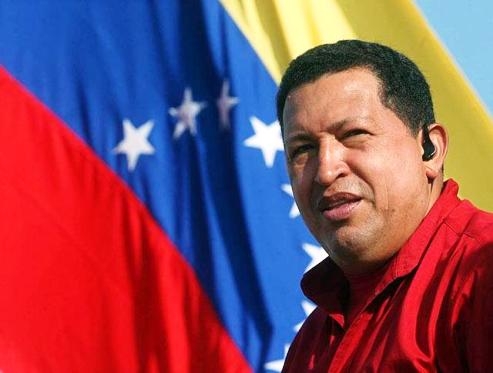By Jeovany Jimenez Vega
With the attempted coup of April 2002, the Venezuelan oligarchy tried to remove from power and/or murder Commander Hugo Chavez, leader of the nascent Bolivarian Revolution. There were moments of intense drama: the uncertainty of the early hours of his ouster and then the tsunami of people, the fiery waves that came down from the hills to restore their elected president to Miraflores Palace, a display of pure courage. That was an impressive and spontaneous reaction; since then the world was certain that something was brewing in Venezuela, something more important than simple ascent of a leader: this was a people with real aspirations, who performed an incredibly brave act of atonement for their true leader.
Parallel events, like the Llaguno Bridge Massacre, widely manipulated by the pro-coup media — “snipers who smashed the skulls of Venezuelans on both sides so as not to arouse suspicions when it came time to accuse the Chavistas,” they reported — and others like the siege of the Cuban embassy, the violent closure ot the official TV channel, and the precipitous recognition by various nations of the “transition government” that lasted no longer than an ice cube in the sun, largely defined Latin American during the following decade and are now Histroy, like it or not by the detractors of Hugo Chavez.
I have never visited Venezuela, so I can not offer an opinion with complete certainty about a reality that I never experienced. Many of my references have come to me from Cuban doctors, nurses or technicians who served there during different stages and I who told me about an excessive social violence, “the painful legacy of past decades,” with youth organized crime, with trigger-happy almost-kids perpetrating crimes in cold blood; they tell me of constant political tensions, the rising scarcities of life, and the opportunistic showing its face on both sides of the conflict.
If there is anything I am aware of, it’s that for the government of Hugo Chávez nothing was exactly easy. But I’m convinced that “I could be wrong about all that,” that in the Venezuelan case the scarcities referred to are greatly speculative, driven by wealthy opponents, because I can’t understand how this could be in such a rich country, with the largest recognized oil reserves in the world.
But one cannot ignore the fact that this oligarchy still retains enough economic power to sabotage, should it decide to do so, precisely because the Government of Hugo Chavez “in addition to its socialist project, but different from the Cuban experience,” respected private property in Venezuela, giving the State control over the most strategic sectors.
Recently we Cubans watched how Maduro delivered his first speech as President, “in which he immediately called elections” under the same roof with known pro-capitalists opponents who listened with respect and were treated with respect, and, through Telesur, the station that could be called the Chavista “official” TV, we watched Capriles deliever his clumsy speech quite naturally before this and other media of the press; a lesson in tolerance we need to learn.
With regards to the elections of this coming April 14, I have few doubts. With hisspeech to the country, Capriles simply dug his own grave. The opposition leader gave a masterclass in political stupidity, in how to incisively attack not only the institutions, but the human sensibility of people still in deep mourning, with a tirade that left a bad taste in the face of elections too close to allow times to make amends.
I am convinced that this slip will cost Capriles tens or hundreds of thousands, perhaps millions of votes. I predict that this election, with the emotional component in his favor, will be won by Maduro by a margin greater than the last one won by Chavez.
To his credit, the commander left a legacy of millions of literate, owners of new homes, through missions like Robinson, Barrio Adentro, Habitat and Great Housing Mission, among others who completed a total of 21 and who sought, above all, to humanize the life of ordinary Venezuelans.
Commander Chavez died after a long battle during which he never lied to his people about his health. With Honorary Doctorates from 10 universities, the “José Martí” International Award of UNESCO, and he earned dozens of international awards, honors and medals, he died convinced of the justness of his struggle, that neoliberal capitalism is guilty of the serious problems in Latin America, of the great hoax and lying to the third world by global institutions like the IMF and the World Bank. He died believing that Bolivar gave us a saving proposal two centuries ago, and therefore embraced that dream until his last breath.
The media of humanity honored him, including the UN General Assembly, the OAS and virtually all regional bodies. Fifty heads of state and government, as well as hundreds of world personalities attended his funeral and left an undeniable mark on the new dynamics of North-South relations. All this convinces me that Hugo Chavez will not belong to us but to history, and maybe not today but tomorrow, History will issue the final verdict.
1 March 2013

